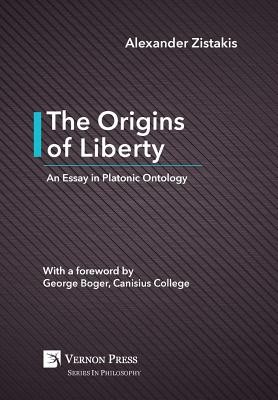
- We will send in 10–14 business days.
- Author: Alexander Zistakis
- Publisher: Vernon Press
- ISBN-10: 1622732898
- ISBN-13: 9781622732890
- Format: 15.2 x 22.9 x 2.4 cm, kieti viršeliai
- Language: English
- SAVE -10% with code: EXTRA
Reviews
Description
Unlike the vast majority of existing literature on Plato, this book seeks to argue that liberty constitutes the central notion and preoccupation of Platonic thought and that his theory of ideas is indeed a theory of liberty. Moreover, this book contends that Plato's thought can be understood to be both one of liberty and a theory of liberation. Bound up in its efforts to reveal both the ideal liberty and the conditions and possibility of its existence in the so-called 'real world, ' the thought of liberty tends to be all-encompassing. Consequently, this book seeks to expose how liberty can be understood to influence Plato's ontological form of analysis in relation to politics, philosophy, and anthropology, as well as its influence on the structural unity of all three.
Understood from such a perspective, this book frames Platonic philosophy as primarily an investigation, an articulation and as a way of establishing the relationship between the individual and the collective. Importantly, this relationship is acknowledged to be the natural and original framework for any conception and exercise of human liberty, especially within democratic theory and politics. By treating Plato's philosophy as a continuous effort to find modes and dimensions of liberation in and through different forms of this relationship, this book hopes to not only engage in the discussion about the meaning of Platonic ontological-political insights on different grounds, but also to provide a different perspective for the evaluation of its relevance to the main contemporary issues and problems regarding liberty, liberation, democracy and politics.
This book will be of interest to both undergraduate students, experienced scholars and researchers, as well as to the general public who have an interest in philosophy, classics, and political theory.
EXTRA 10 % discount with code: EXTRA
The promotion ends in 21d.10:05:35
The discount code is valid when purchasing from 10 €. Discounts do not stack.
- Author: Alexander Zistakis
- Publisher: Vernon Press
- ISBN-10: 1622732898
- ISBN-13: 9781622732890
- Format: 15.2 x 22.9 x 2.4 cm, kieti viršeliai
- Language: English English
Unlike the vast majority of existing literature on Plato, this book seeks to argue that liberty constitutes the central notion and preoccupation of Platonic thought and that his theory of ideas is indeed a theory of liberty. Moreover, this book contends that Plato's thought can be understood to be both one of liberty and a theory of liberation. Bound up in its efforts to reveal both the ideal liberty and the conditions and possibility of its existence in the so-called 'real world, ' the thought of liberty tends to be all-encompassing. Consequently, this book seeks to expose how liberty can be understood to influence Plato's ontological form of analysis in relation to politics, philosophy, and anthropology, as well as its influence on the structural unity of all three.
Understood from such a perspective, this book frames Platonic philosophy as primarily an investigation, an articulation and as a way of establishing the relationship between the individual and the collective. Importantly, this relationship is acknowledged to be the natural and original framework for any conception and exercise of human liberty, especially within democratic theory and politics. By treating Plato's philosophy as a continuous effort to find modes and dimensions of liberation in and through different forms of this relationship, this book hopes to not only engage in the discussion about the meaning of Platonic ontological-political insights on different grounds, but also to provide a different perspective for the evaluation of its relevance to the main contemporary issues and problems regarding liberty, liberation, democracy and politics.
This book will be of interest to both undergraduate students, experienced scholars and researchers, as well as to the general public who have an interest in philosophy, classics, and political theory.


Reviews